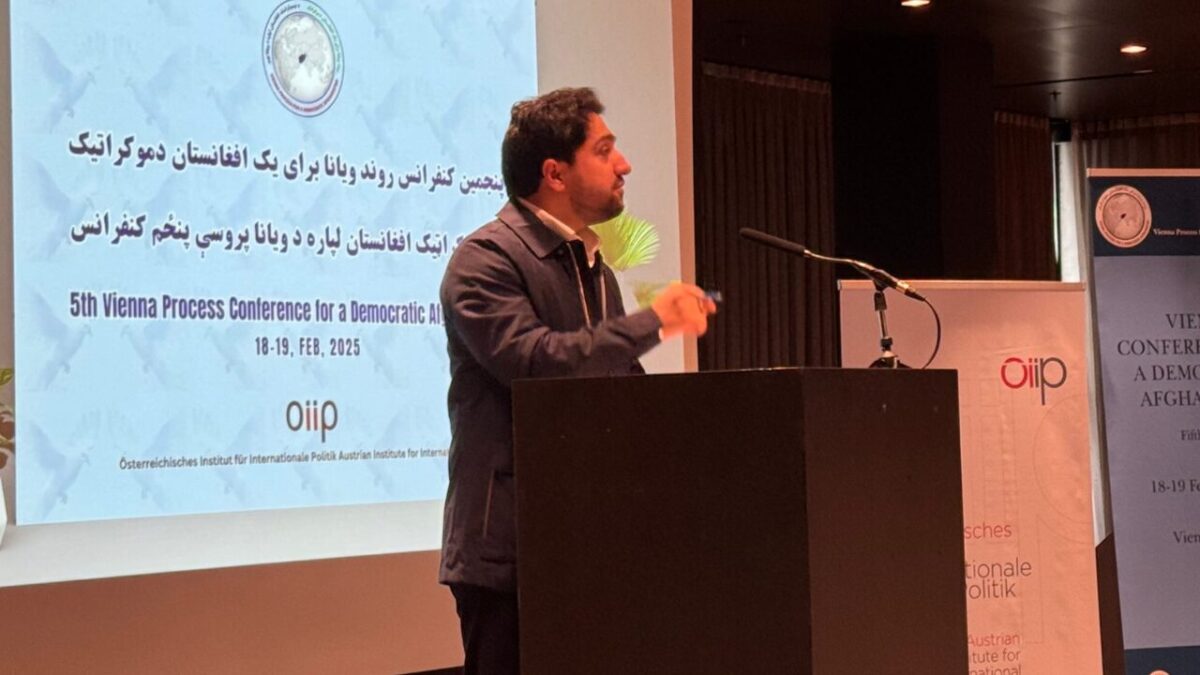Ahmad Massoud, leader of the National Resistance Front (NRF), said on Tuesday that a comprehensive plan for Afghanistan’s future has been finalized, emphasizing that it is inclusive and based on cooperation and consensus among various factions.
Speaking at the fifth round of the Vienna Conference on Afghanistan, held in Austria, Massoud stated: “We must refer to the plan that we have prepared through collaboration and agreement. It is not as if we lack a vision or program. Our plan is not designed for an individual, a specific group, or an ethnic community—it is for Afghanistan’s future.”
The conference has brought together leaders of anti-Taliban military fronts, political figures, and women’s rights activists to discuss the country’s post-Taliban future.
Yasin Zia, leader of the Afghan Freedom Front, stressed that their struggle is not just against the Taliban but against terrorism as a whole.
“We are not fighting only the Taliban—we are standing against terrorism. There is no such thing as good or bad terrorism, and this fight will continue until terrorism is eradicated from Afghanistan,” Zia said.
He also criticized the Taliban’s economic dealings, stating, “The Taliban scramble wherever financial interests are involved—one leader runs in one direction, another rushes to a different country to keep the flow of money intact.”
Rangin Dadfar Spanta, Afghanistan’s former national security adviser, highlighted the growing strength of anti-Taliban military fronts but stressed the need for greater national unity.
“The resistance fronts have grown stronger through unparalleled sacrifice, but we must become even more inclusive. The fundamental issue is the liberation of our people, which must remain at the center of our struggle,” Spanta said.
Some participants pointed to internal Taliban divisions, drug trafficking, and dwindling international aid as key factors contributing to Afghanistan’s instability.
“The Taliban’s internal rifts, the drug trade, and declining global assistance are the main drivers of Afghanistan’s instability,” Khalid Pashtoon, a former parliament member, said.
Former parliamentarian Fawzia Koofi echoed these concerns, stating that the Taliban’s infighting over control of resources, mines, and political power is deepening, which could work to the advantage of opposition groups.
In a statement, the Vienna Process organizers said that 90 representatives from Afghanistan’s political, military, and civil society groups are attending the two-day conference, which focuses on political alternatives for Afghanistan’s future beyond the Taliban.
A resolution on Afghanistan’s future is expected to be issued at the end of the conference.
The fourth round of the Vienna Process, held in July 2024, emphasized continued efforts to establish a legitimate and democratic government in Afghanistan.




